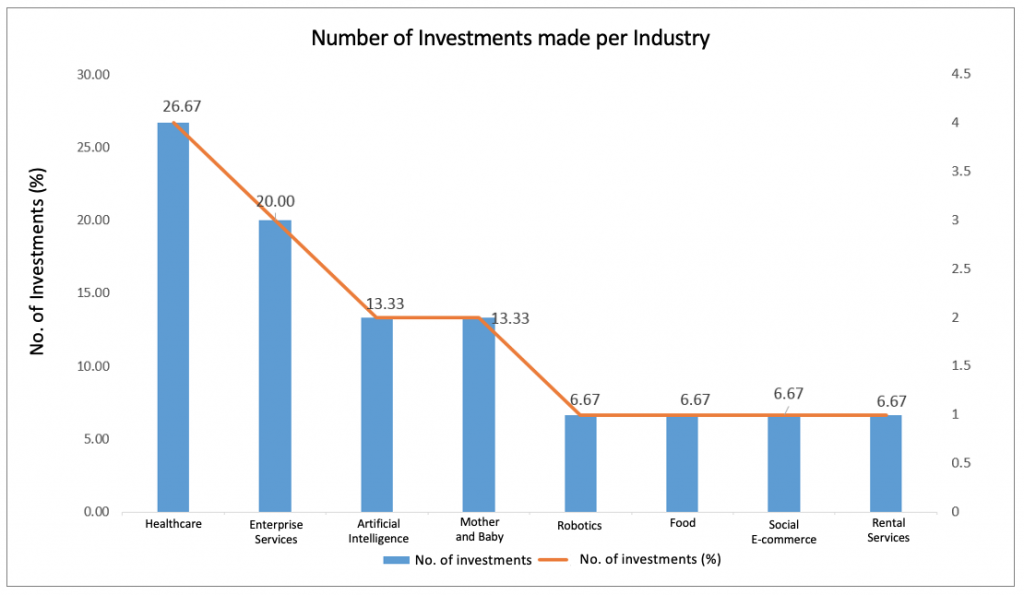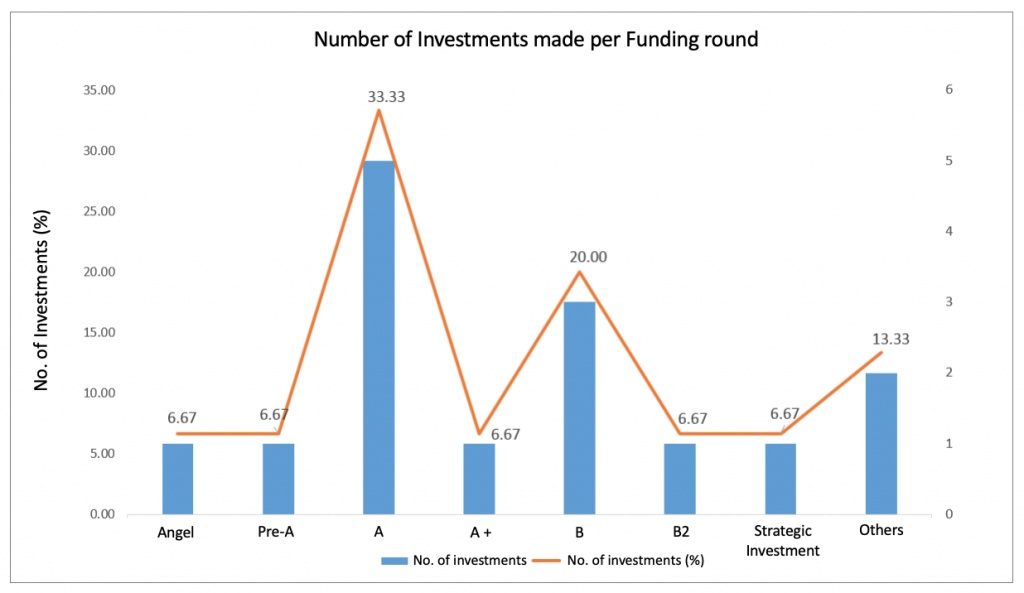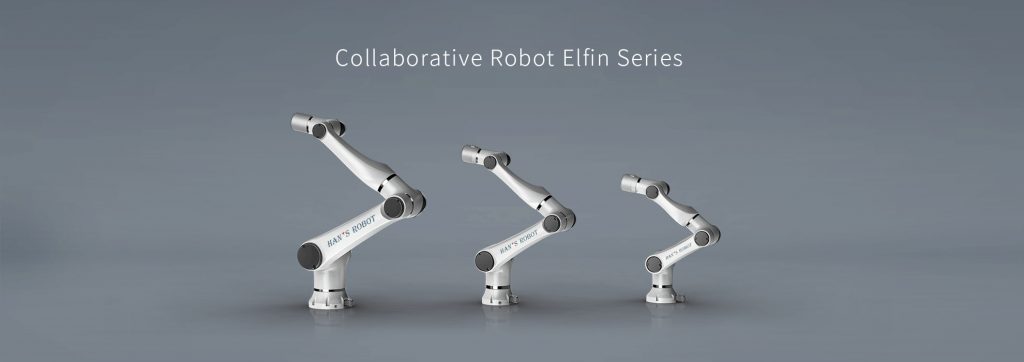Key trends we observed
A total of 15 investments occurred from October 4 to 11—a significant drop from last week’s 63 investments. The top 3 verticals this week are: healthcare (4 investments, accounting for 26.67%), enterprise services (3, 20%), finance (4, accounting for 6.3%), and artificial intelligence (2, 13.33%). Healthcare and enterprise services remain highly popular amongst investors.

Early and growth stage funding saw a fair amount of action during the week, with Series A noticing a slight increase in the number of deals. Series A investments led with 5 deals (accounting for 33.3%) and Series B investments had 3 deals (20%).

Top Stories: VCs and Investments
As sharp drop in big ticket investment deals (exceeding RMB 100 million) was observed this week, totaling to a mere 7 compared to last week’s 29. Unsurprisingly, healthcare maintained lead status with 3 companies receiving these big-ticket investments.
The RMB 970 million investment into bio-med startup 3D Med is recorded as the week’s largest deal. 3D Med focuses on R&D and commercialization of new generation tumor immunotherapy drugs, and is currently in late stage clinical development and early commercialization.
In addition, the increasing investments in consumer fields such as maternity and child goods, and social e-commerce indicate the gradual recovery of retail and consumer industries, as the epidemic stabilizes. Moreover, investors attention turns to these industries with the upcoming 11.11 sale season—the peak sales period for maternity and infant goods, and social e-commerce.
Top Stories: Funds
Donghu Innovation Technology Investment (东湖创新科技投资) and Jinan Financial Investment Fund (济南市财政投资基金) signed a cooperation agreement to jointly set up a government-guided fund with a target scale of RMB 10 billion, promoting the complementary and coordinated development of industries in Wuhan and Jinan.
The first industry guidance fund of Jiangxi National Jiujiang Economic Development Zone, the Jiujiang Economic Development Zone Innovation Industry Development Guidance Fund (九江经开区创新产业发展引导基金), was successfully established. It is also the first industrial investment fund with market-oriented operation as its main objective.
The total scale of the fund is about RMB 1 billion, and Jiujiang Kuntai Equity Investment Fund Management 九江昆泰股权投资基金管理 serves as the fund manager. It is jointly established by the investors Jiujiang Fuhe Construction Investment Group (九江富和建设投资集团有限公司) and Jiujiang Economic Development Finance Enterprise Management (区财政局九江经开财企通企业管理). It is an industrial investment platform established in accordance with the principle of “government guidance, market viability, risk prevention and continuous development.”
Top Stories: Policy
- Ministry of Culture and Tourism: 618 millions domestic tourists were recorded in the week leading up to the National Day Holiday
The Ministry of Culture and Tourism notes on the recovery of domestic travel with the tourism spike observed during the recent National Day Holidays. On the 7th of October itself, almost 42.9 million domestic tourists were recorded and RMB 31.84 billion was noted as the gross revenue, thus generating a year-on-year recovery of 82.6% and 78.1% respectively.
Similarly, the entire week saw a total of 618 million domestic tourists with revenue totaling RMB 454.33 billion. The year-on-year recovery was noted as 79.0% and 69.9% respectively.

- Ministry of Industry and Information technology: China’s lithium-ion battery output recorded a 23.3% year-on-year in August
According to the Ministry of Industry and Information Technology, the national output of lithium-ion batteries was 1.79 billion, up 23.3% on year-on-year basis in August. From January to August, the revenue of battery manufacturing enterprises nationwide reached RMB 446.9 billion, noting an annual decrease of 7.2%, and a total profit of RMB 19.76 billion, a year-on-year increase of 0.8%.
- Shenzhen Stock Exchange: Extra support provided for scientific and technological innovation
The Shenzhen Stock Exchange has stated their will to study, understand, and fully implement the requirements of the State Council’s opinions on further improving the quality of listed companies.
It will continue to persist in empowering reform, maintain the Growth Enterprise Market (GEM) board positioning, enhance the market tolerance and coverage, continuously highlight scientific and technological innovation, and promote the overall synergy between science and technology, capital and the real economy. Second, there will be added focus on the go-to-market process and regulations, maintaining risk levels and protecting the legitimate rights and interests of investors. Third, they will focus on being service-oriented and encourage collaboration.
- State Post Bureau: China’s express delivery development index increased by 48.5% in September
According to the information of the State Post Office, the development index of China’s express delivery in September 2020 is 330.2, with a year-on-year increase of 48.5%. Among them, the development scale index, service quality index and development trend index were 292.6, 585, and 104.9, respectively, which were 26.8%, 87.5%, and 41.8% higher than that of the same period of last year, all maintaining a high-speed growth trend.
Note-worthy startups on our watchlist
Food
Mr.pancake (煎饼先生); founded 2016, raised Series A
Mr.pancake raised a successful Series A, valued at RMB 10 million. This round was led by EatMain and followed by Ubank x Inifinity Holdings.
According to founder Cui Manyi, the funding will be used to strengthen their supply chain, upgrading of their brand and retail stores, and growing the operations team. Founded in 2016, Mr.pancake started out in Xinjiang, and then entered Jiangsu, Zhejiang, Shanghai, Wuhan, and other regions through opening regional representatives. There are currently more than 115 stores in China. Mr.pancake’s winning formula is to adapt different local flavours, using natural ingredients and consistency in its product quality.
Maternal and Infant products
Bebebus; founded in 2018, raised Series A+
Maternity and infant product company successfully raised their Series A+. Tiantu Capital, Gaorong Capital, and Matrix Partners China invested in this round, raising nearly RMB 100 million. Bebebus’ very first baby stroller was launch in August 2019, targeting young mothers born in the early 1990s. The stroller sold more than 10 million units in its first three months. With this year’s sales also exceeding 10 million units, Bebebus’ stroller is ranked number 1 on Tmall 618.
Bebebus has grown from a 10 person team to more than 100 strong in 2 years. The founding team has more than 10 years of branding experience. The team’s daily duties are spread out according to their age. Those born after 1995 are in charge of customer insights, those after 1985 focus on strategizing brand differentiation and those after 1975 are responsible for product structure.

Energy
Leinao AI (中科类脑); founded in 2017, raised Series A
Leinao’s Series A was led by Hefei Industrial Investment, followed by JC Capital, CDF Capital, Huafu Jiaye (华富嘉业), Quantum Group of Funds, Guoyuan Equity, and more. This round will be used to continue R&D, improve the product, and market positioning.
Founded in 2017, Leinao focuses on the Internet of Things in the energy sector providing technical solutions. The core members of the Leinao team come from first-class universities and institutions such as the University of Science and Technology China and Microsoft Asia Research Institute. The team applied artificial intelligence technologies such as computer vision, network intelligence, and cross-media multimodal analysis, and accumulated a certain amount in the construction of artificial intelligence open-source platform and the intelligent transformation of energy industry.
Transportation
Raythink (锐思华创); founded in 2019, raised pre-Series A
Raythink is an AR company that focuses on building vehicle-mounted AR display products. They successfully raised tens of millions in RMB for their pre-A round, primarily from Oriental Fortune Capital. Raythink’s business is built around the core of providing customers with monitoring and display solutions, from R&D, constructing original solutions, production, delivery, and after-sales service.
At present, the company holds 10 patents. They also unveiled their first AR-HUD (augmented reality heads-up display) product last year, with a field of view (FOV) of 22°5° aimed at preventing front vehicle collisions, pedestrian collisions, and providing lane departure warnings.
Artificial Intelligence
Hans Robot (大族机器人); founded in 2017, raised Series A
Hans Robot raised their Series A round, totaling RMB 165 million. This round was led by Suzhou Tengxin Investments, Beijing Honghan Investment Fund Management, and other institutions. The funds will be used to accelerate R&D and the marketing of the company’s robots, and support its entry into different fields such as industry, medical treatment, logistics, and more.
Founded in 2017, Hans Robot is an incubated startup by Hans Laser Technology. The leading technology team largely come from Beijing University of Aeronautics and Astronautics, and the members of the senior management team have more than ten years’ management experience in Hans Laser Technology.

